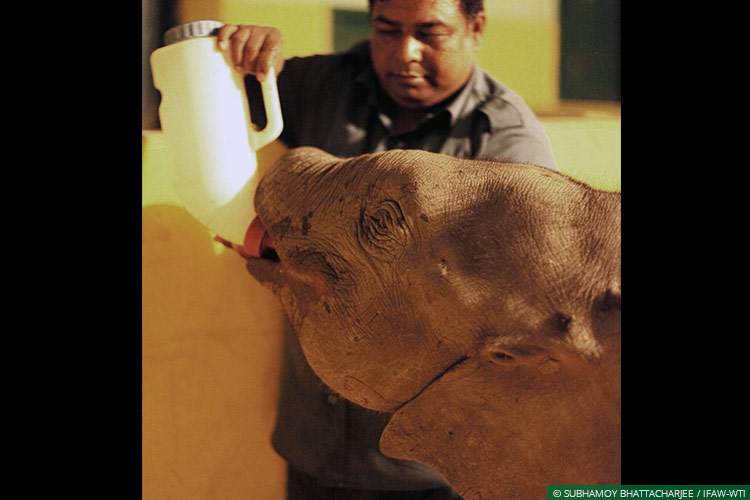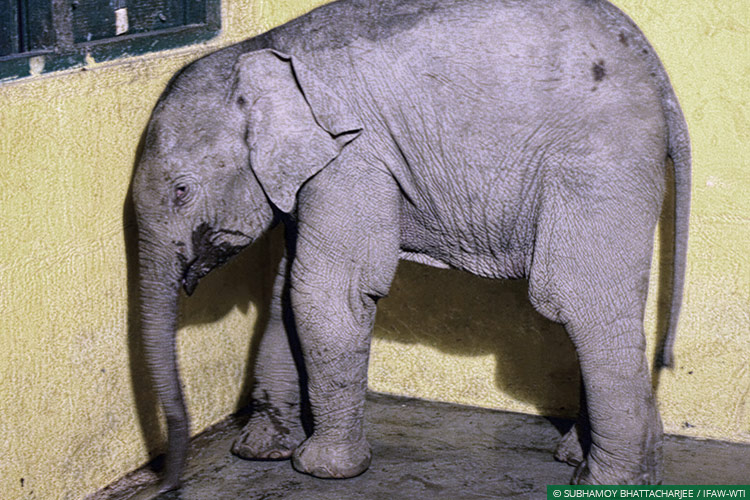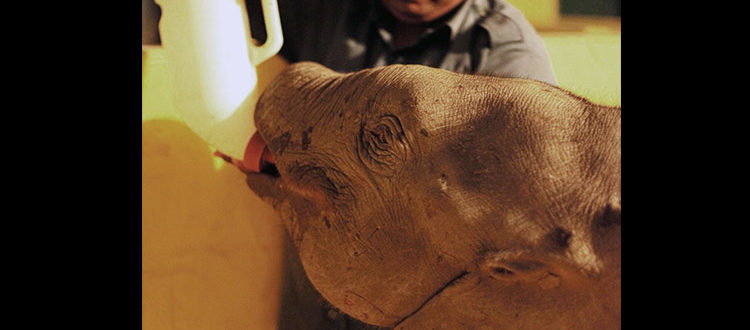Flood-affected Elephant Calf Rescued from Nameri National Park, Brought to CWRC
 The rescued male elephant calf receives milk formula at CWRC’s Large Animal Nursery
The rescued male elephant calf receives milk formula at CWRC’s Large Animal Nursery
CWRC, Assam, July 6, 2017: An orphaned male elephant calf, about a year old, was rescued yesterday morning by frontline forest staff in Paleng, a village on the fringes of Nameri National Park in Assam’s Sonitpur district. The calf was brought to CWRC (the Centre for Wildlife Rehabilitation and Conservation, IFAW-WTI and the Assam Forest Department’s wildlife rescue, treatment and rehabilitation facility near Kaziranga National Park) for treatment and long-term care last evening.
It is believed that the calf was separated from its natal herd while crossing the flooded Kameng River (locally known as the Jia Bhorelli) during the night. Informed by villagers of the lone calf’s presence near Paleng, and unable to locate the natal herd, the forest department rescue team brought the calf to the Potasali Range Office.
It is believed that the calf was separated from its natal herd while crossing the flooded Kameng River during the night.
The nearest IFAW-WTI Mobile Veterinary Service (MVS) unit, located at the Centre for Bear Rehabilitation and Conservation (CBRC) in Pakke Tiger Reserve, Arunachal Pradesh, responded to the forest department’s request for assistance. “The calf had very superficial external wounds”, said CBRC veterinarian Dr Rinku Gohain, who conducted a preliminary health examination upon reaching the range office. “We provided oral rehydration and supportive treatment as it was found to be dehydrated.”
As there was no scope of reuniting the calf with its natal herd, Nameri National Park officials determined that it should be taken to CWRC for its betterment. It was transported to CWRC under sedation by Dr Gohain, CBRC animal keepers Aman Biri and Lakhiram Bhuyan, and frontline forest staff Bikram Bey and Nitailal Majumdar.
The calf is now under stabilisation at CWRC’s Large Animal Nursery, and is being monitored round the clock by veterinarians Dr Panjit Basumatary and Dr Samshul Ali.
 The calf is being monitored round the clock by CWRC veterinarians and animal keepers
The calf is being monitored round the clock by CWRC veterinarians and animal keepers









